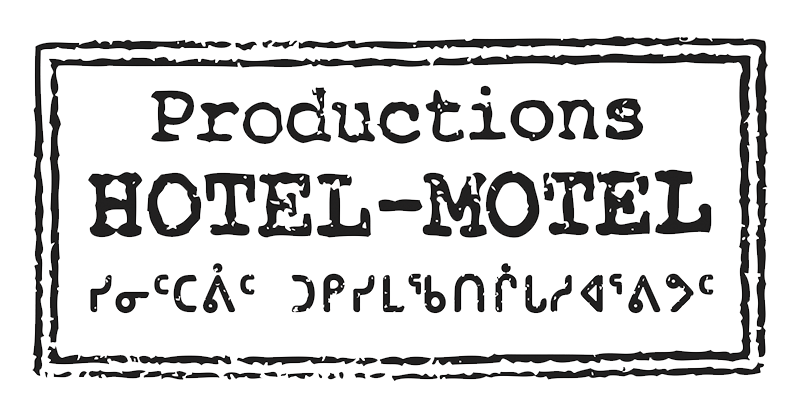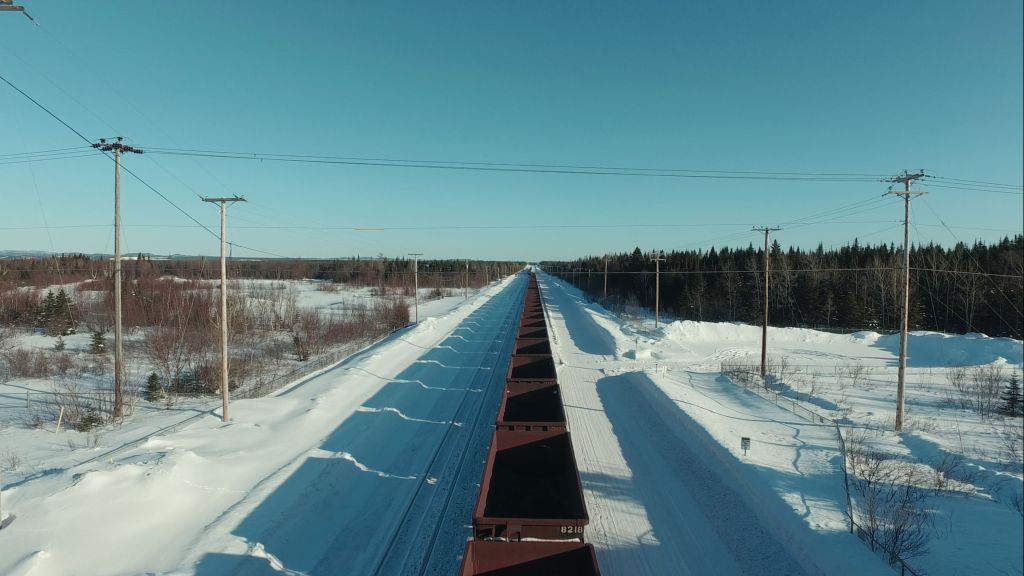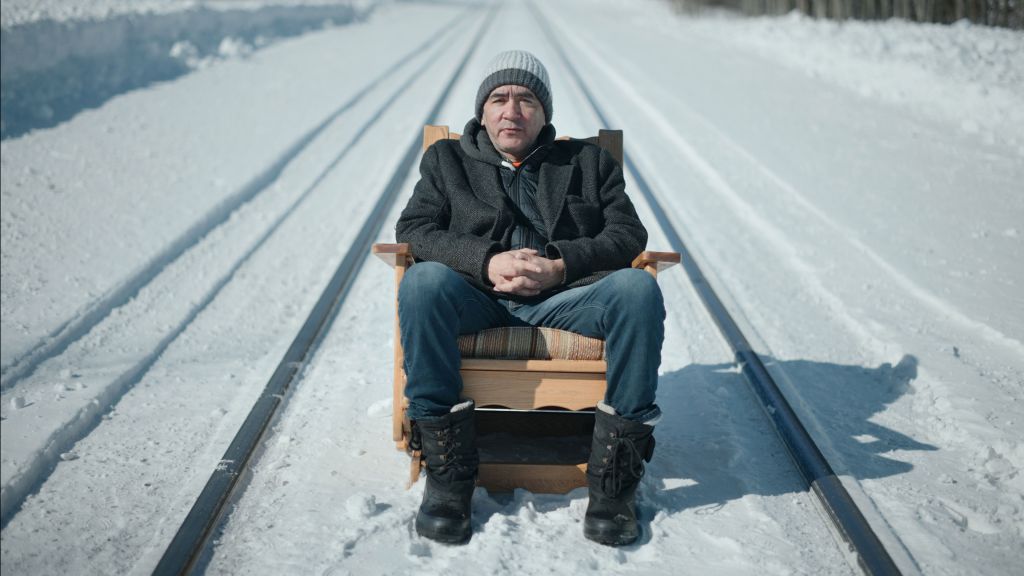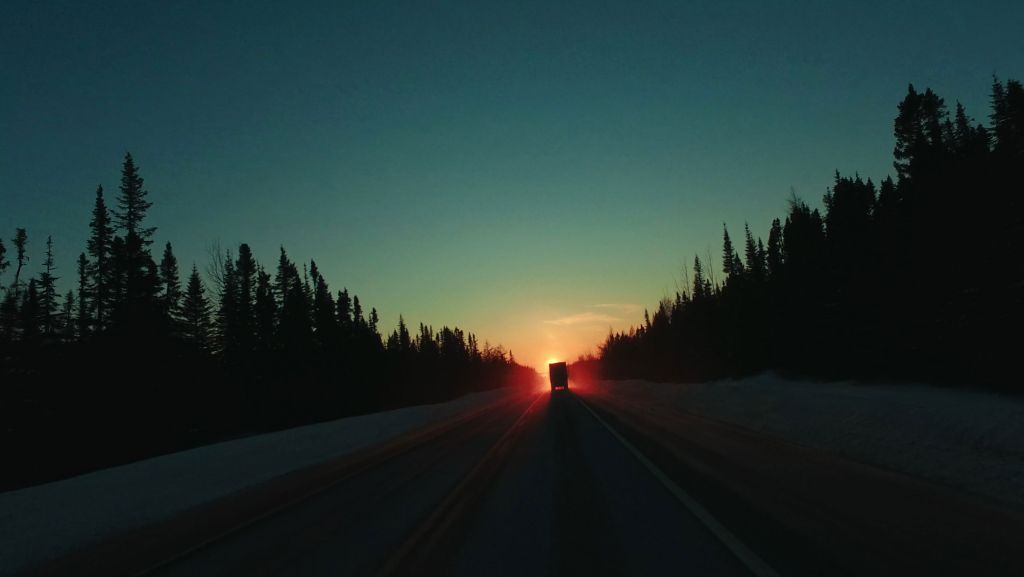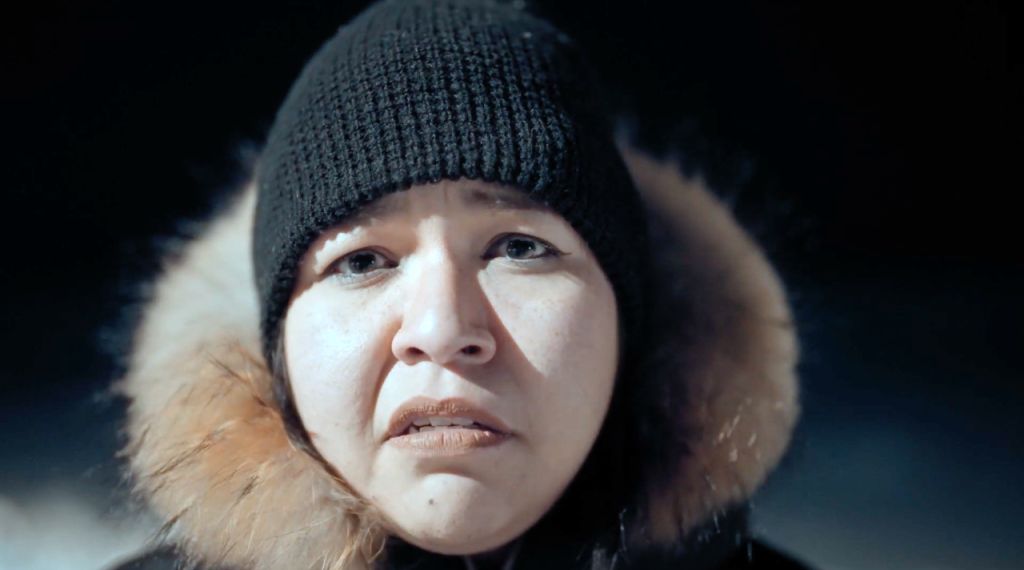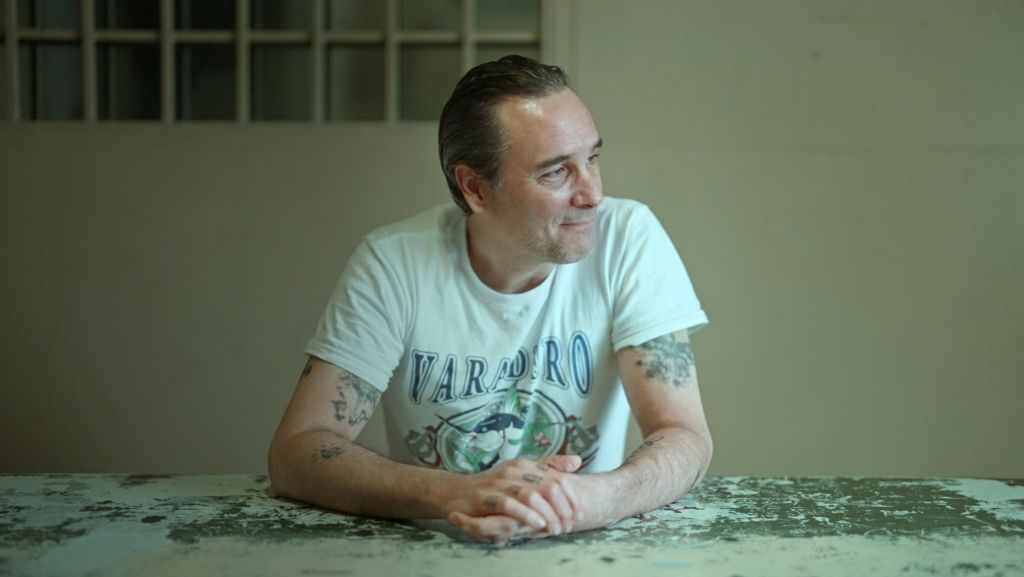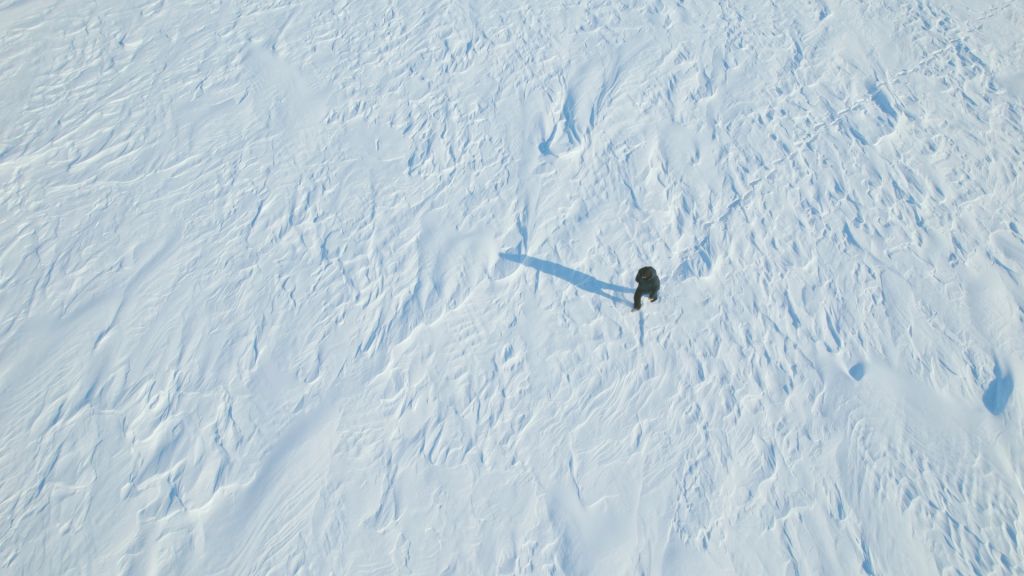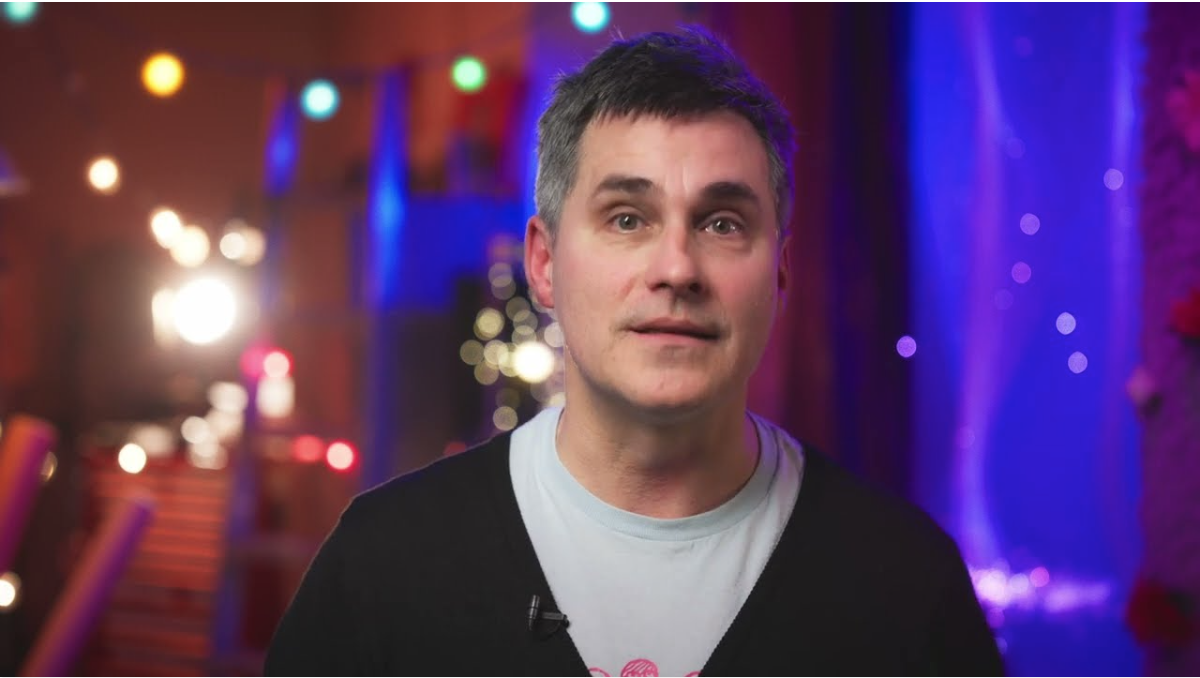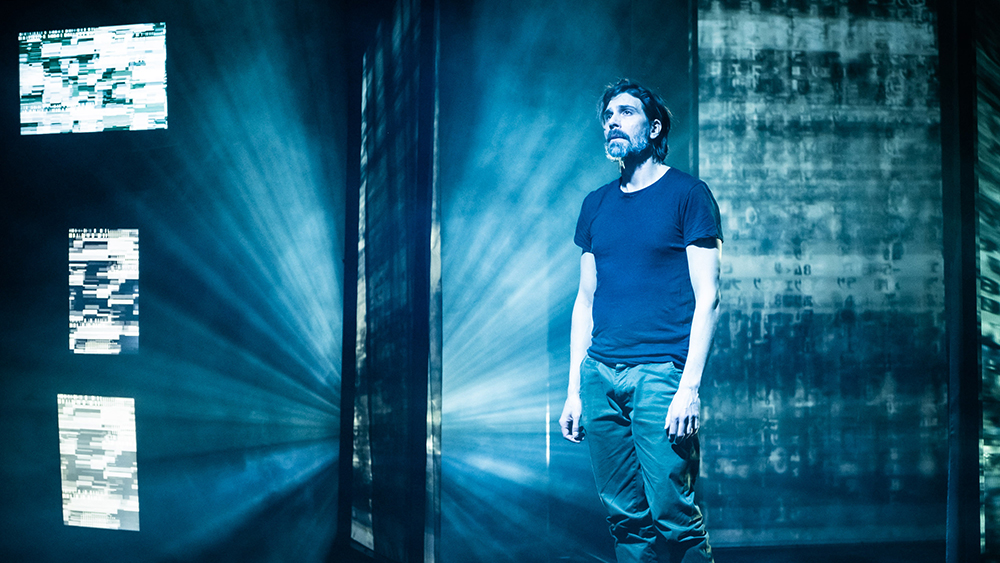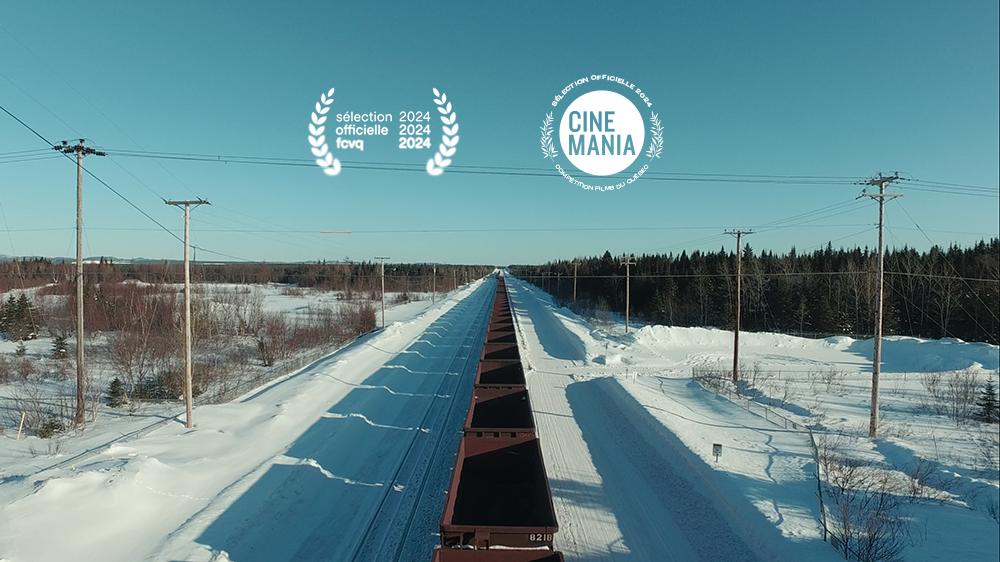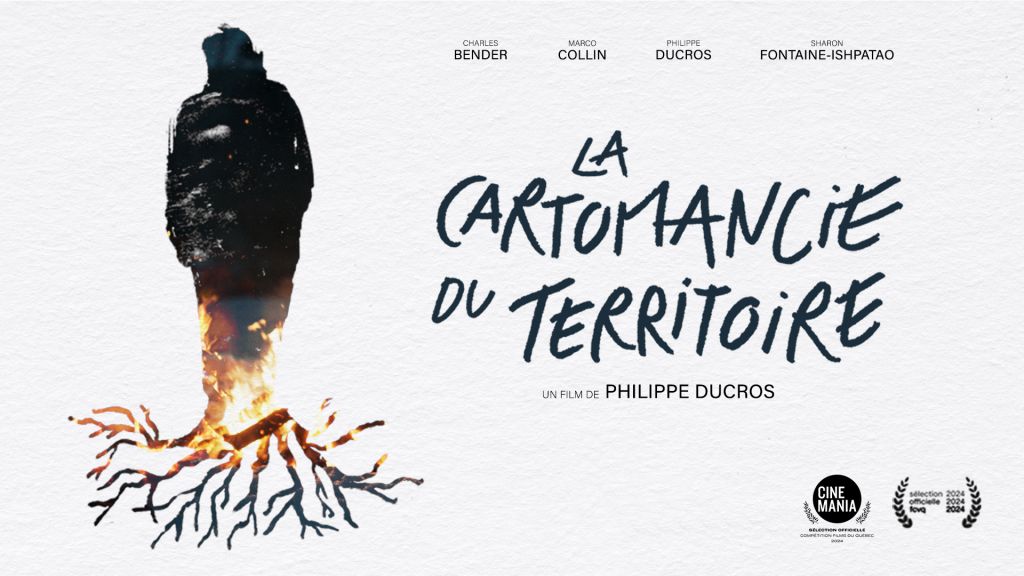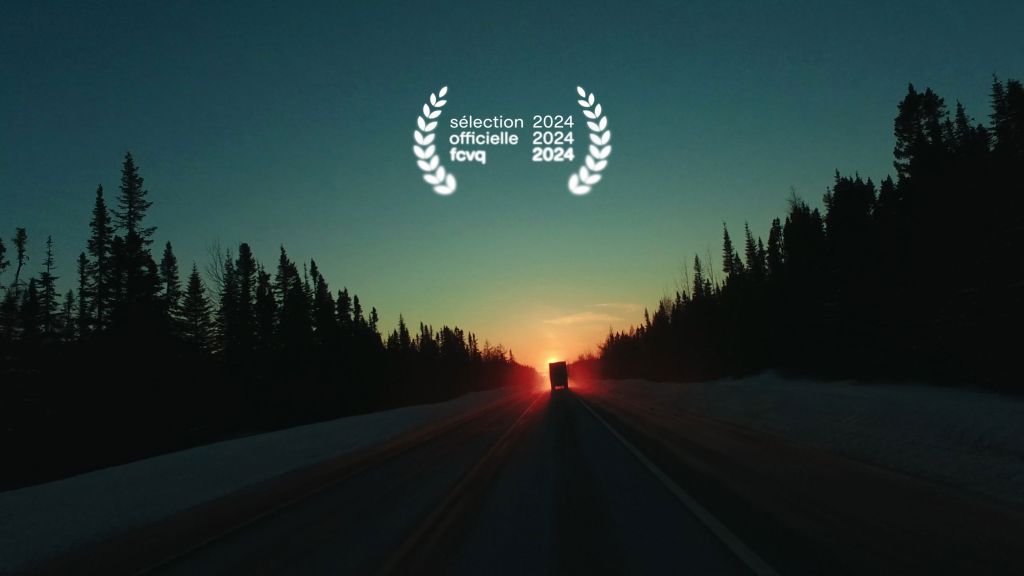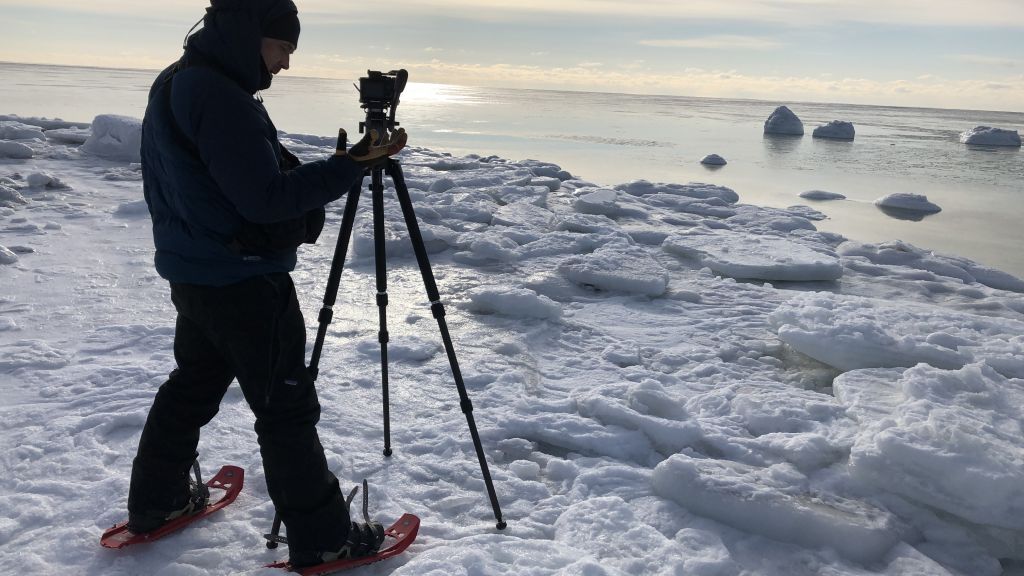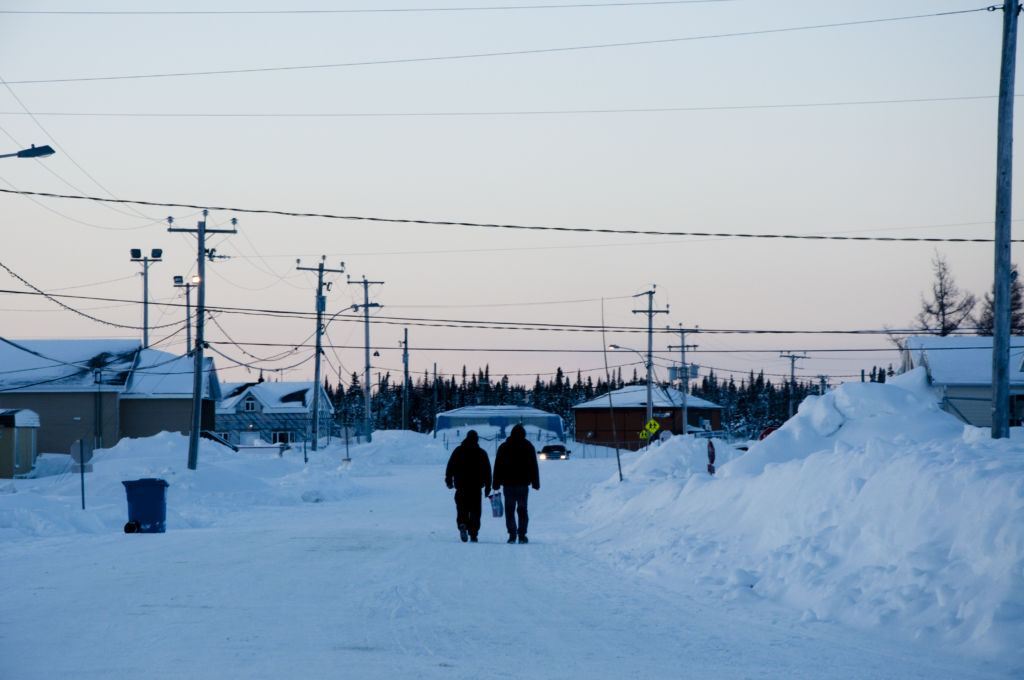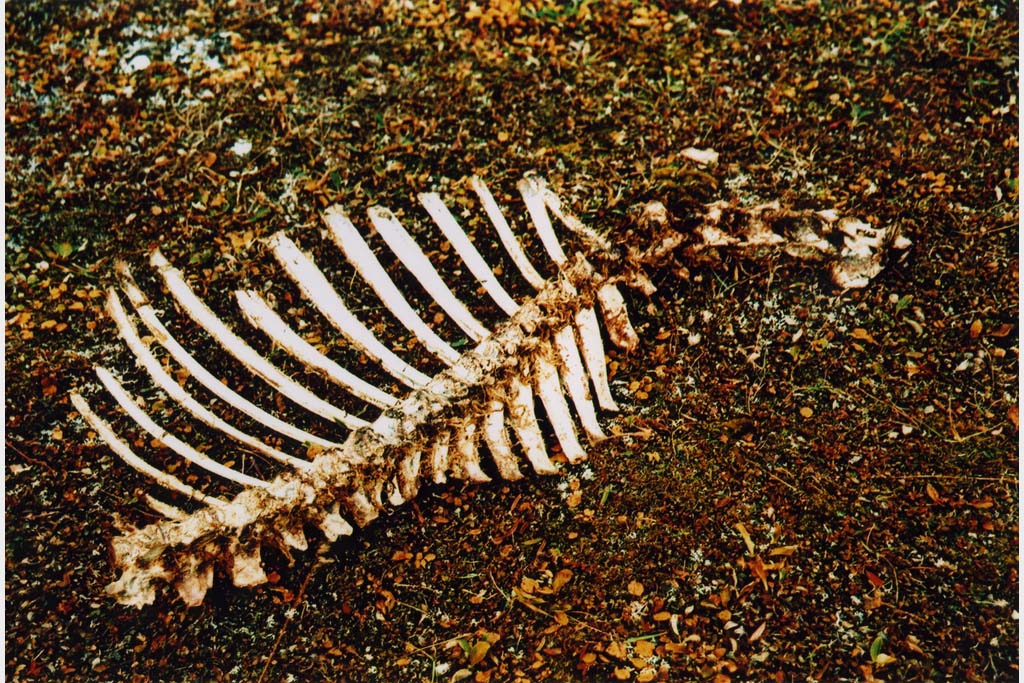© Éli Laliberté and Philippe Ducros / Nitassinan / 2018-2022
FORETELLING THE LAND (FEATURE FILM)
A French-speaking Quebecker, overworked like many others in our time, sets off on a road trip towards some of Quebec’s First Nations communities in search of meaning, of healing, and of a different way of reading the world. He tries to understand the ravages of colonialism perpetrated on these nations by a system that continues to favour him. He seeks to see what has been done in his name, with the intuition that through these people, he will gain a better understanding of what is happening to him. His journey will lead him all the way into the prison system, where the over-representation of First Nations people is symptomatic of the traumas these communities have inherited, and of the systemic racism that persists.
Arising from several stays in First Nations and Inuit communities, Foretelling the Land is an introspective movie about our relationship to reserves, both Indigenous and natural, and to the colonization of land and of thought.
A movie by Philippe Ducros
With Charles Bender, Marco Collin, Philippe Ducros and Sharon Fontaine-Ishpatao
Direction and screenplay Philippe Ducros
Translation into innu-aimun Bertha Basilish and Evelyne St-Onge
Cinematography Éli Laliberté
Editing Natalie Lamoureux
Music Florent Vollant
Music integration Larsen Lupin
Sound design Sylvain Bellemare
Sound mixing Martin M Messier
Executive Producer Marie-Christine André
With the participation of Kathia Rock, Fanny Michel, Marcello Vollant, Evelyne St-Onge, Philippe McKenzie, Éric Vollant, Stephen Jerome Sr, Moise Dominique, Marie Dominique, Jean-Luc Shapato Vollant, Shikuan Vollant, Anne-Marie St-Onge, Makess Fafard, Rachel Bacon, Kiut St-Onge, Emmanuel Claude « Papess » Vollant, Pascale Cutnam, Loriane Etienne-Verreault, Maïna Etienne-Verreault and Grégoire Canapé
Produced by HÔTEL-MOTEL
Produced with the support of the PRIM creation program.
TOUR DATES
Friday, December 6, 2024 at 7:00 PM (English-language screening) – Cinéma du Musée – Montreal, Quebec (Canada)*
IN FRENCH
Sunday, December 15, 2024 at 12:30 PM – La maison du cinéma – Sherbrooke, Quebec (Canada)*
Monday, December 9, 2024 at 7:00 PM – Cinéma du Musée – Montreal, Quebec (Canada)
The screening will be followed by a film-conference with Jean-Luc Kanapé entitled The caribou, Atiku, guardian of a culture.
Sunday, December 8, 2024 at 1:00 PM – Cinéma du Musée – Montreal, Quebec (Canada)
The screening will be followed by a film-conference with Yvette Mollen entitled Innu-aimun: living language and preservation issues.
Saturday, December 7, 2024 at 4:30 PM – Cinéma Moderne – Montreal, Quebec (Canada)*
Saturday, December 7, 2024 at 1:00 PM – Cinéma du Musée – Montreal, Quebec (Canada)
The screening will be followed by a film-conference with Nina Segalowitz entitled Inuit: living culture, contemporary challenges.
Friday, November 29, 2024 at 4:00 PM – Cinéma Public | Casa d’Italia – Montreal, Quebec (Canada)
Sunday, November 24, 2024 at 1:00 PM – Cinéma Public | Casa d’Italia – Montreal, Quebec (Canada)
Friday, November 22, 2024 at 6:00 PM – Cinéma Public | Casa d’Italia – Montreal, Quebec (Canada)*
Wednesday, November 13, 2024 at 5:15 PM – Cinéma Moderne | Festival CINEMANIA – Montreal, Quebec (Canada)*
Saturday, November 9, 2024 at 1:30 PM – Cinéma Cinéplex Odéon Quartier Latin | Festival CINEMANIA – Montreal, Quebec (Canada)*
Saturday, September 14, 2024 at 4:00 PM – Musée national des beaux-arts du Québec | Festival de cinéma de la ville de Québec – Quebec, Quebec (Canada)*
* These screenings are followed by a Q&A with members of the team.
